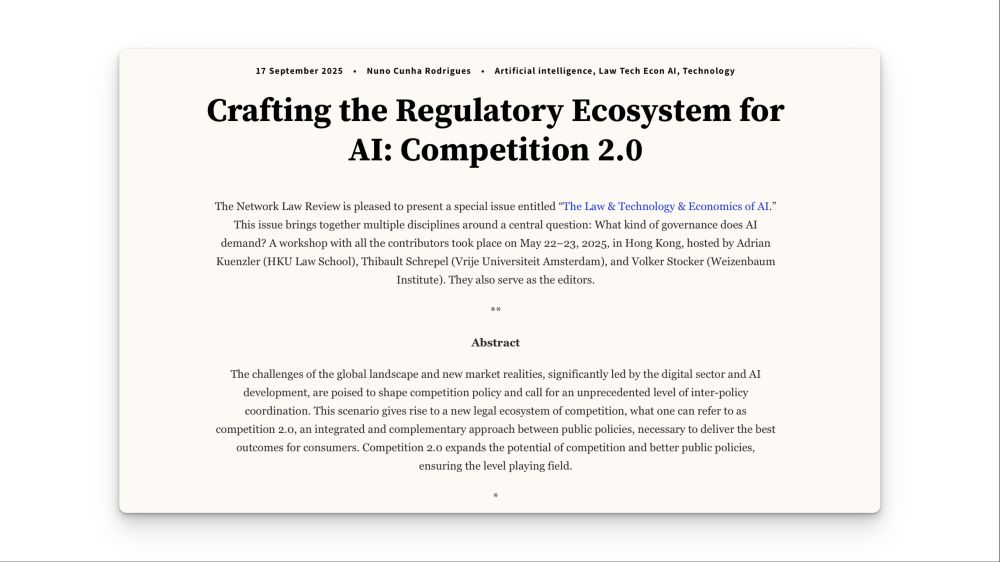
https://www.networklawreview.org
Read here 👇 www.networklawreview.org/crane-great-...

Read here 👇 www.networklawreview.org/crane-great-...
👉 networklawreview.org/spulber-indu...

👉 networklawreview.org/spulber-indu...
www.networklawreview.org/dosi-industr...

www.networklawreview.org/dosi-industr...
This new issue (with ICLE) explores this tension. Read the introduction 👉 www.networklawreview.org/special-issu...

This new issue (with ICLE) explores this tension. Read the introduction 👉 www.networklawreview.org/special-issu...
www.networklawreview.org/schrepel-fut...

www.networklawreview.org/schrepel-fut...



www.networklawreview.org/kuenzler-ai/

www.networklawreview.org/kuenzler-ai/
New in @networklawreview.bsky.social, Visiting Professor @flogsell.bsky.social outlines how #GDPR provisions often fail to apply to AI systems, highlighting the need for more adaptive, flexible, and responsive regulatory approaches.

New in @networklawreview.bsky.social, Visiting Professor @flogsell.bsky.social outlines how #GDPR provisions often fail to apply to AI systems, highlighting the need for more adaptive, flexible, and responsive regulatory approaches.
Daniel Schnurr highlights 5 key challenges: risk mitigation, trade-offs, adaptability, value-chain responsibility & coherence with sectoral rules.
www.networklawreview.org/schnurr-ai-a...

Daniel Schnurr highlights 5 key challenges: risk mitigation, trade-offs, adaptability, value-chain responsibility & coherence with sectoral rules.
www.networklawreview.org/schnurr-ai-a...


He argues that AI disruption demands a new regulatory ecosystem where competition law works hand in hand with other public policies www.networklawreview.org/cunha-rodrig...

He argues that AI disruption demands a new regulatory ecosystem where competition law works hand in hand with other public policies www.networklawreview.org/cunha-rodrig...









Key message: rising market power in the U.S. is largely driven by technological advances rather than weak antitrust enforcement.
www.networklawreview.org/rising-marke...

Key message: rising market power in the U.S. is largely driven by technological advances rather than weak antitrust enforcement.
www.networklawreview.org/rising-marke...
@ssrn.bsky.social during 2024: networklawreview.org/top-2024/.

@ssrn.bsky.social during 2024: networklawreview.org/top-2024/.

